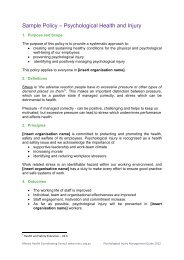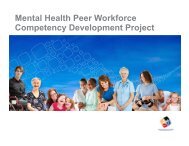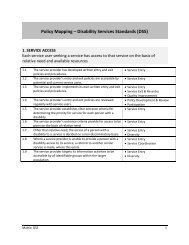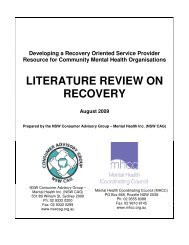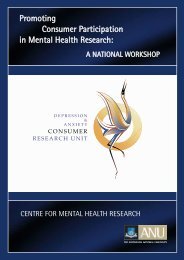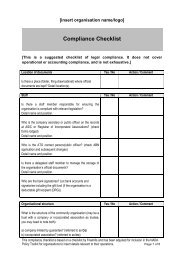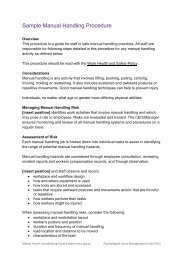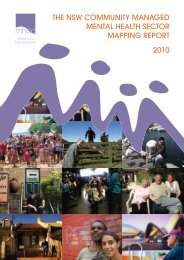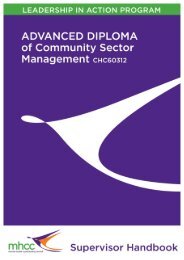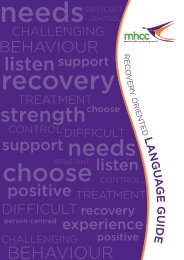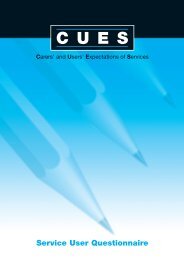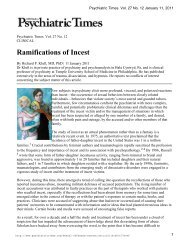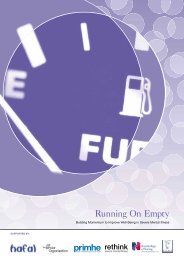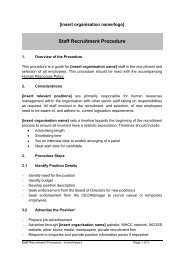cultural competence checklists for workers & agencies
cultural competence checklists for workers & agencies
cultural competence checklists for workers & agencies
Create successful ePaper yourself
Turn your PDF publications into a flip-book with our unique Google optimized e-Paper software.
Factsheet No. 17 - Networking with NESB (non-English speaking<br />
backgrounds) communities: A practical guide<br />
Networking is about establishing relationships and building alliances with individuals, groups and<br />
organisations to share in<strong>for</strong>mation and skills and to undertake activities of mutual benefit.<br />
Networking is a key strategy <strong>for</strong> increasing the participation of people from a non‐English speaking<br />
background (NESB) with disability and their families in your services and programs.<br />
Networking:<br />
<br />
<br />
<br />
<br />
raises the profile of your organisation in the communities you are targeting;<br />
enables you to promote your services more effectively;<br />
provides you with access to <strong>cultural</strong>/religious in<strong>for</strong>mation, knowledge and expertise; and<br />
enables you to establish partnerships and work together to achieve common goals.<br />
1. Identify the NESB community/ies you want to target<br />
How: Consider: Resources to help you:<br />
The number of communities<br />
a) Refer to<br />
you target at any one time<br />
Factsheet 16:<br />
will depend on a range of<br />
Who lives in our<br />
factors including staff<br />
community<br />
numbers, resource<br />
Identifying community<br />
implications, intensity of<br />
diversity<br />
work, etc.<br />
2. Collect in<strong>for</strong>mation about the community<br />
Factsheet 16 is available from MDAA:<br />
phone (02) 9891 6400 or download<br />
http://www.mdaa.org.au/publications<br />
/faqs/index.html<br />
How:<br />
a) Access monographs<br />
and historical data<br />
b) Identify community<br />
leaders, key<br />
community<br />
organisations,<br />
Consider collecting the<br />
following in<strong>for</strong>mation:<br />
How long has the<br />
community lived in the area<br />
Any significant events in the<br />
history of the community<br />
What are some of the <strong>cultural</strong><br />
practices, traditions and<br />
rituals in the community<br />
What do we know about<br />
disability in the community<br />
Which groups, organisations<br />
exist in the area<br />
What are some places where<br />
members of the community<br />
Resources to help you:<br />
The following websites contain<br />
monographs on a number of ethnic<br />
communities residing in Australia.<br />
They have a particular focus on<br />
disability and culture:<br />
http://www.sttar.org/<br />
http://www.diversityrx.org/<br />
http://www.mdaa.org.au<br />
The Ethnic Communities Council<br />
of NSW (ECC) publishes the Ethnic<br />
Communities Reference Book. To<br />
obtain a copy contact:



